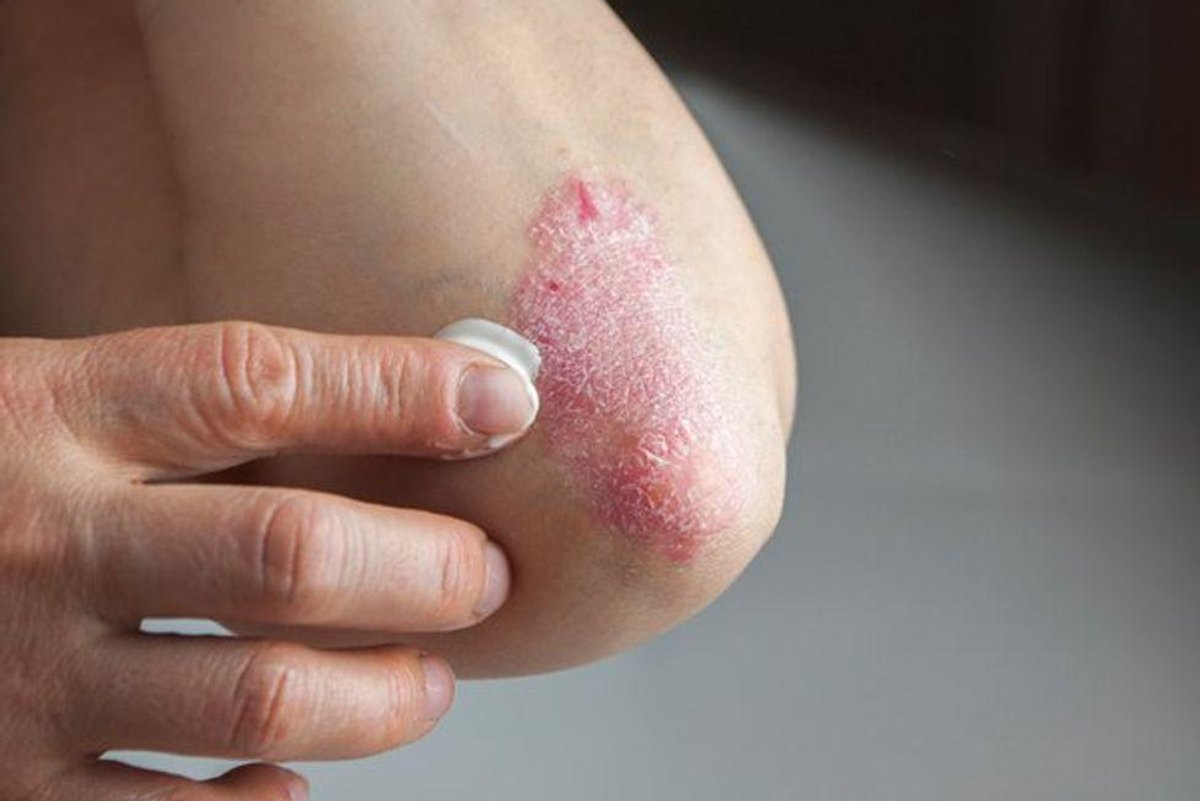Psoriasis is a persistent, chronic inflammatory skin condition caused by an inherited genetic defect that affects about 7.5 million people in the United States, according to the National Psoriasis Foundation.
The study of the genetic connection to psoriasis is fairly new: it wasn't until the early 1970s that research began. With recent improvements in technology and increases in funding, studies are beginning to rapidly expand.
Yet, many people—even those afflicted with this condition—aren't fully aware of the facts associated with this condition, and there are some pretty serious consequences and complications associated with psoriasis.
Here are some facts you may want to know:
- People with psoriasis are 3.8 to 7.5 times more likely than the general population to develop Crohn's disease and ulcerative colitis.
- Psoriasis also puts you at higher risk for lymphoma, obesity, heart disease, type 2 diabetes and metabolic syndrome.
- Psoriasis, like any other chronic disease, can be stressful and increase the risk and rate of depression, suicide, smoking and alcohol consumption.
While many people don't know the facts about psoriasis, there are many commonly held misconceptions. Now is a good time to set the record straight, separating facts from myths:
- Myth: Psoriasis only affects adults.
Fact: While it is primarily seen in adults, it can occur in all age groups. It usually strikes between the ages of 15 and 30. Although most people who will get it will have it by age 40, it can begin as late as your 50s.
- Myth: Psoriasis only affects your skin.
Fact: Psoriasis causes the skin to grow faster than it can shed, resulting in sore, reddish, itchy skin with flaky, silvery white scales. Though symptoms vary from person to person, most people will suffer irritation on their scalp, knees, elbows, hands and feet. But it can also affect the eyelids, ears, fingernails, toenails, inside the mouth and soft tissues of the genitals.
Additionally, about 40 percent of people with the disease experience joint inflammation that produces arthritis-like symptoms, a condition known as psoriatic arthritis.
- Myth: Psoriasis is contagious.
Fact: You cannot "catch" psoriasis: It is a genetic condition triggered when there is a glitch in your immune system. Having one family member increases your risk, while having two parents with the disease increases it even more. But although it's genetic, you can have a relative with it and not get it at all.
- Myth: There is no effective treatment for psoriasis.
Fact: Topical treatments, like anthralin, coal tar, emollients, salicylic acid, tazarotene, topical corticosteroids and some forms of vitamin D, can help with mild to moderate psoriasis. These treatments tend not to be effective for more serious cases. For those, treatment with UV light therapy and other medications might be more helpful.
There are systemic treatments available (prescription drugs that work throughout the body), like cyclosporine, methotrexate, retinoids, biologic response modifiers and acitretin.
- Myth: If someone in your family has psoriasis, you will get it, too.
Fact: Although it is an inherited disease, you can have the gene and never develop psoriasis. In fact, just 2 percent to 3 percent of people with the gene will actually go on to develop the disease.
- Myth: People with psoriasis should stay out of the sun.
Fact: The condition usually improves in the summer. Sun exposure can slow the growth of the affected cells.
- Myth: If you have psoriasis, you should avoid baths and wash your hair infrequently.
Fact: Baths containing oils or bath salts may help soothe the skin for many people with psoriasis, but it's important that the water is not too hot. Hot water can be irritating and drying. Also, limit the bath to about 10 minutes. Swimming is OK, but a shower should follow, because chlorine left on the skin can be irritating and drying.
Daily hair washing is fine. A medicated shampoo can help with the symptoms, and washing will help eliminate extra scales and dry patches on your scalp.
- Myth: Food can trigger a psoriasis flare-up.
Fact: That's unlikely. Although symptoms wax and wane, there are definite things that commonly do contribute to a flare-up, like stress; cold, dry weather; strep throat; or even a skin injury like a cut, scratch or bad sunburn.
There is a spice that can actually help with psoriasis: turmeric, that neon yellow-orange spice used to make curry, can ease symptoms by lowering the inflammation that fuels psoriasis, especially during a flare.
- Myth: People with psoriatic arthritis should avoid exercise.
Fact: Moderate exercise can improve joint pain and stiffness in some people. It can help increase flexibility and improve endurance.
Find out more about psoriasis at:
National Psoriasis Foundation
Mayo Clinic
National Institute of Arthritis and Musculoskeletal and Skin Diseases
- My Psoriasis Led to My Empowerment - HealthyWomen ›
- Psoriatic Arthritis Can Put You at Risk for Other Health Problems - HealthyWomen ›
- Psoriatic Arthritis Can Put You at Risk for Other Health Problems - HealthyWomen ›
- Beyond the Physical: How Psoriatic Arthritis Can Affect Your Mental and Sexual Health - HealthyWomen ›
- Living with Psoriasis My Entire Life, I Knew I Could Develop Psoriatic Arthritis - HealthyWomen ›
- Get the Facts About Psoriatic Arthritis - HealthyWomen ›
- Listen to Healthcare Providers, but Trust Your Body and Yourself - HealthyWomen ›
- Clinically Speaking: Questions to Ask Your HCP About Psoriatic Arthritis - HealthyWomen ›
- How Psoriasis Affects Your Overall Well-Being - HealthyWomen ›







